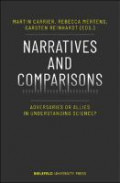
Narratives and comparisons :adversaries or allies in understanding science?
As a powerful tool in the production of knowledge, comparing plays a crucial part in the sciences and the humanities. This volume explores the relationship between comparing and narrating in episte…
- Edisi
- -
- ISBN/ISSN
- 9783839454152
- Deskripsi Fisik
- 202 p.
- Judul Seri
- -
- No. Panggil
- 501 NAR n
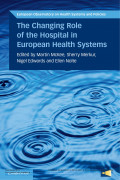
The changing role of the hospital in European health systems
Hospitals today face a huge number of challenges, including new patterns of disease, rapidly evolving medical technologies, ageing populations and continuing budget constraints. This book is writte…
- Edisi
- -
- ISBN/ISSN
- 9781108855440
- Deskripsi Fisik
- xix, 305p. : ill.
- Judul Seri
- -
- No. Panggil
- 362.11068 CHA c
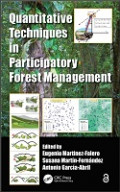
Quantitative techniques in participatory forest management
Forest management has evolved from a mercantilist view to a multi-functional one that integrates economic, social, and ecological aspects. However, the issue of sustainability is not yet resolved. …
- Edisi
- -
- ISBN/ISSN
- 1466569255
- Deskripsi Fisik
- XX, 588 p.
- Judul Seri
- -
- No. Panggil
- 333.750151 QUA q

Balancing the self:Medicine, politics and the regulation of health in the twe…
Concepts of ‘balance’ have been central to modern politics, medicine and society. Yet, while many health, environmental and social challenges are discussed globally in terms of imbalances in bi…
- Edisi
- -
- ISBN/ISSN
- 9781526132123
- Deskripsi Fisik
- xvi, 348p.: ill.
- Judul Seri
- -
- No. Panggil
- 362.19646200941 BAL b
Madrasa in Asia:political activism and transnational linkages
Since the rise of the Taliban and Al Qaeda, the traditional Islamic schools known as the madrasa have frequently been portrayed as hotbeds of terrorism. For much longer, the madrasa has been consid…
- Edisi
- -
- ISBN/ISSN
- 9789048501380
- Deskripsi Fisik
- 303 p. : maps ; 24 cm.
- Judul Seri
- -
- No. Panggil
- 370.95 MAD m
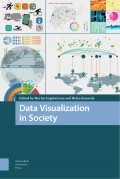
Data visualization in society
Today we are witnessing an increased use of data visualization in society. Across domains such as work, education and the news, various forms of graphs, charts and maps are used to explain, convinc…
- Edisi
- -
- ISBN/ISSN
- 9789463722902
- Deskripsi Fisik
- -
- Judul Seri
- -
- No. Panggil
- 001.4226 DAT d

Error-correction coding and decoding :bounds, codes, decoders, analysis and a…
This book discusses both the theory and practical applications of self-correcting data, commonly known as error-correcting codes. The applications included demonstrate the importance of these codes…
- Edisi
- -
- ISBN/ISSN
- 9783319511030
- Deskripsi Fisik
- xx, 522p. : ill.
- Judul Seri
- -
- No. Panggil
- 005.717 ERR e

Australian indigenous knowledge and libraries
In response to significant changes in the Indigenous information landscape, the State Library of New South Wales and Jumbunna Indigenous House of Learning at the University of Technology, Sydney, h…
- Edisi
- -
- ISBN/ISSN
- 9780980284010
- Deskripsi Fisik
- V, 179 p.
- Judul Seri
- -
- No. Panggil
- 027.630899915 AUS a

Managed software evolution
This open access book presents the outcomes of the “Design for Future – Managed Software Evolution” priority program 1593, which was launched by the German Research Foundation (“Deutsche Fo…
- Edisi
- -
- ISBN/ISSN
- 9783030134990
- Deskripsi Fisik
- xxii, 426p. : ill.
- Judul Seri
- -
- No. Panggil
- 005.1 MAN m
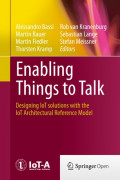
Enabling things to talk :designing IoT solutions with the IoT architectural r…
The Internet of Things (IoT) is an emerging network superstructure that will connect physical resources and actual users. It will support an ecosystem of smart applications and services bringing hy…
- Edisi
- -
- ISBN/ISSN
- 9783642404030
- Deskripsi Fisik
- x, 349p. : ill.
- Judul Seri
- -
- No. Panggil
- 004.678 ENA e
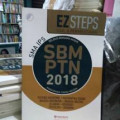
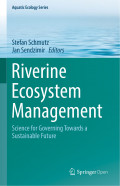
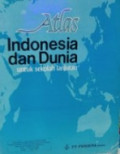
 Karya Umum
Karya Umum  Filsafat
Filsafat  Agama
Agama  Ilmu-ilmu Sosial
Ilmu-ilmu Sosial  Bahasa
Bahasa  Ilmu-ilmu Murni
Ilmu-ilmu Murni  Ilmu-ilmu Terapan
Ilmu-ilmu Terapan  Kesenian, Hiburan, dan Olahraga
Kesenian, Hiburan, dan Olahraga  Kesusastraan
Kesusastraan  Geografi dan Sejarah
Geografi dan Sejarah